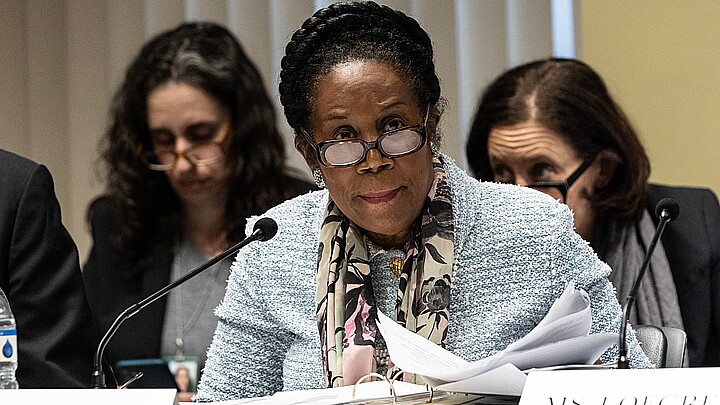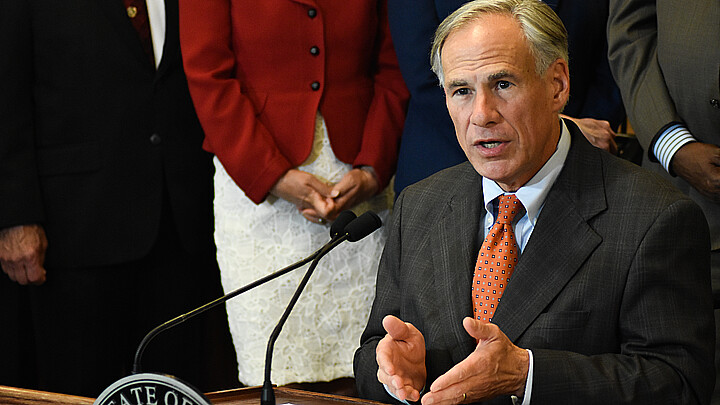Politics
Reps. Green, McCaul sound alarm on China in Latin America, push Western Hemisphere Nearshoring Act
The Western Hemisphere Nearshoring Act will protect private investment dollars to companies currently manufacturing in China if they move to Latin America
June 12, 2022 8:46am
Updated: June 12, 2022 12:21pm
Two of the most prominent Republican representatives in Congress are sounding the alarm about China’s growing presence and power in Latin America, and are presenting a solution with new legislation.
House Foreign Affairs Committee Ranking Member Rep. Michael McCaul, of Texas, and Rep. Mark Green of Tennessee and the ranking member of the Subcommittee on Western Hemisphere, Civilian Security, Migration and International Economic Policy are telling other members of Congress the U.S. must “wake up” to the reality of China's growing presence in Central America, which McCaul termed as “our own backyard.”
The two Republican members of Congress have teamed up with Democratic Rep. Albio Sires of New Jersey to push a solution termed the Western Hemisphere Nearshoring Act that will reward U.S. companies currently based in China if they relocate their base of operations to Latin America.
McCaul discussed the subject during a roundtable discussion on Wednesday with other members of the China Task Force, which is charged with the responsibility to investigate China's involvement in the COVID-19 outbreak while also developing strategies on how to handle other threats from Beijing including economic and scientific espionage in the United States.
In an interview with Fox News Digital about comments made by Colombian President Iván Duque Márquez last week, that the U.S. is trailing China in Latin American strategic infrastructure investment, McCaul agreed with the South American chief executive.
“If you're not on the field, you can't win a game, can't win a contest if you're not on the field. And for too long, the United States has not been on the field against China to compete. And we need more private investments,” McCaul said, highlighting that China extracts cobalt and lithium from Latin America and ships it back to China, to its Shenzhen province.
McCaul’s hard hitting comments come after Duque has started a campaign to rally the U.S. to increase its presence in Latin America, alerting Washington that the land of the free is trailing China.
During the Fox News Digital interview, Duque said he does not consider China's trade relationship with Colombia in itself, a “threat.”
“I have said that Colombia has a commercial relation with China, a trade relationship, as the U.S. has a trade relationship with China. And we have seen Chinese corporations come to Colombia to participate in infrastructure bids, and they have won some. They have lost others. And many people ask me, for example, if I consider that a threat, I don't consider that as a threat,” Duque explained.
“I always try to call other countries to actively participate in the strategic infrastructure biddings that we have. We haven't seen that much American companies participating. And I think they have to participate. They have to be more present, not only in Colombia but in the rest of Latin America, because those guys' biddings are transparent, they're open, but it's great to see more U.S. investment participating in those kinds of projects,” Duque said.
While praising the Colombian president on one hand, McCaul was quick to criticize Mexican President Andrés Manuel López Obrador's boycott of the Los Angeles based Summit of the Americas in California, expressing concern that Mexico, which he described as the nation in America’s “backyard” is allying itself with totalitarian states such as Cuba, Nicaragua and Venezuela.
“We need to wake up. This is in our own backyard. And this unholy alliance that Xi made with Putin is also an unholy alliance in our own backyard,” the Texas based Congressman said.
McCaul also said the United States has must stop funding China’s ‘Belt and Road Initiative’, which he called a “debt trap.”
China’s Belt and Road Initiative began in 2013 by current Chinese President Xi Jinping. It is a massive multi-trillion-dollar infrastructure plan aiming to connect China with more than 100 countries through energy, railroad, and shipping infrastructure projects. Some Republicans have sounded the alarm that it is one of the most significant signs that China has amped up its competitive edge against the United States.
Green also told Fox News Digital that a bipartisan bill he introduced in April, the “Western Hemisphere Nearshoring Act,” is designed to challenge China’s presence in the region and increase U.S. investment in Latin America, which he believes will help reduce the number of illegal migrants trying to come to the United States
“It's designed to protect private investment dollars, so no taxpayer dollars, just private investment dollars to companies manufacturing in China if they move to Latin America, create opportunity in Latin America, push back and compete with the Belt and Road Initiative," Green explained.
“And by creating opportunity in Latin America, decrease pressure on our southern border. So it's a win-win, we decouple from China, it's a win, we help our neighbors in Latin America, we push back on Belt and Road, and it's win that it affects the push factors of migration come to the United States.”
Democratic Rep. Albio Sires of New Jersey who is Chair of the Subcommittee on the Western Hemisphere, Civilian Security, Migration, and International Economic Policy who is co-sponsoring the legislation said he believes the U.S. can contain China.
“This bipartisan legislation is a critical part of our strategy to compete with China,” he said in a recent statement featured on a Congressional website. By incentivizing producers to relocate to Latin America and the Caribbean, we can contain China's influence while creating economic opportunity, addressing the root causes that drive migration to the U.S. I'm proud to work alongside Congressman Green to build a more prosperous and resilient Western Hemisphere.”










